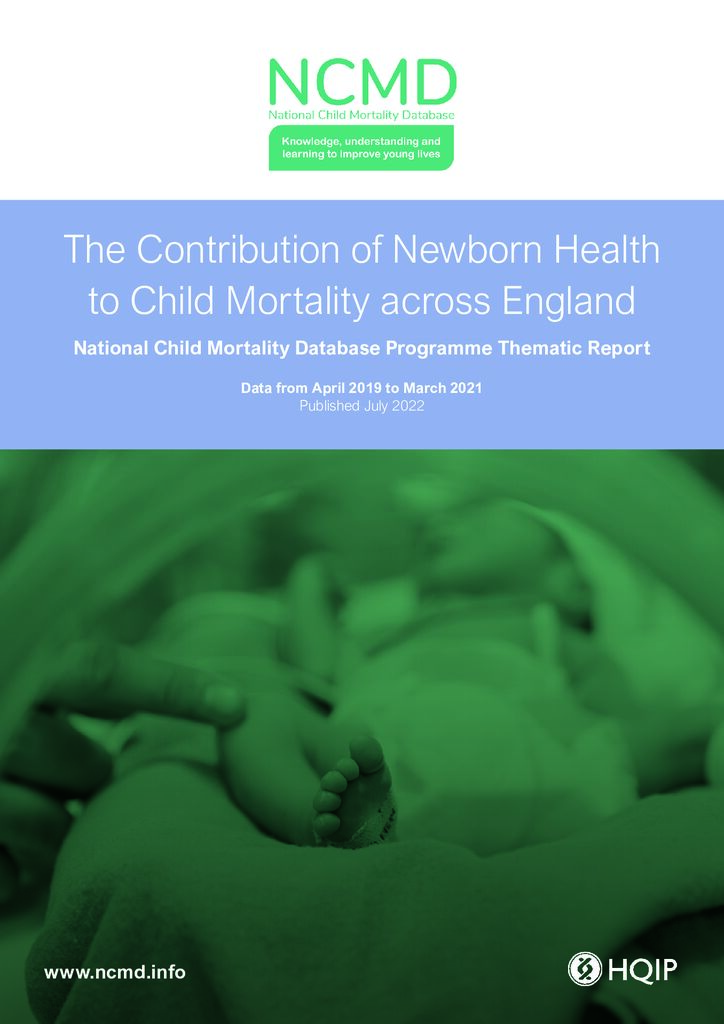National Child Mortality Database: The contribution of newborn health to child mortality across England
The National Child Mortality Database (NCMD) has published its latest thematic report on the contribution of newborn health to child mortality across England. Based on data collected from April 2019 to March 2021, it aims to understand patterns and trends in child deaths where an event before, or around, the time of birth had a significant impact on life, and the risk of dying in childhood.
The report found that for babies born alive, at or after 22 weeks gestation, who subsequently died before 10 years of age between 1 April 2019 and 31 March 2021, half of the deaths occurred in children over one month old. Other key findings include:
- Children who received additional care after birth (neonatal care) made up 83% of children who died before their first birthday, 38% of deaths in the next four years, and 27% of deaths between the ages of 5 and 9
- There is a clear association between childhood death following neonatal illness and learning disabilities. Over half of the children who died also had learning disabilities.
It also found that, for child deaths reviewed by a Child Death Overview Panel (CDOP) and categorised as a perinatal/neonatal event, modifiable factors were identified in 34% of deaths. 20% identified a modifiable factor within the characteristics of the child, including pregnancy factors. The most common factors were smoking in pregnancy or the household, and maternal obesity, both of which increase the chance of premature birth and complications for the baby.
The report makes a number of recommendations including a call to make the prevention of preterm birth a priority, stating that social initiatives to reduce or mitigate the social determinants (eg smoking, obesity and deprivation) should be given resources and support.
This report was updated on 15/07/2022 to add key signposting to the end of Recommendation 14 on page 8.
Read the full report: You can read the report by clicking on the link below.
Stay up-to-date: For notifications of future reports from HQIP, sign up to our mailing list.


